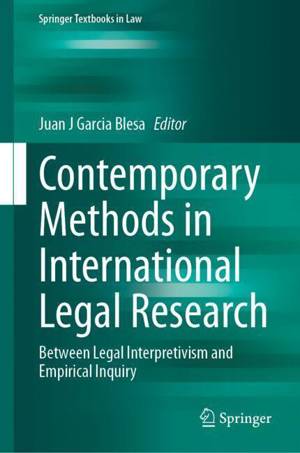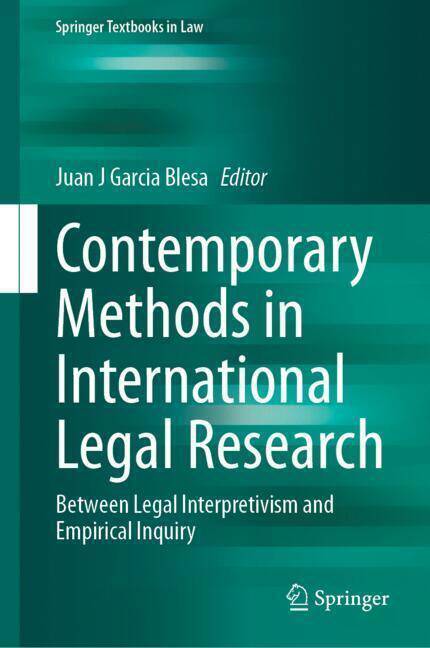
- Retrait gratuit dans votre magasin Club
- 7.000.000 titres dans notre catalogue
- Payer en toute sécurité
- Toujours un magasin près de chez vous
- Retrait gratuit dans votre magasin Club
- 7.000.0000 titres dans notre catalogue
- Payer en toute sécurité
- Toujours un magasin près de chez vous
Contemporary Methods in International Legal Research
Between Legal Interpretivism and Empirical Inquiry
Description
This book is a concise practical guide to some of the most relevant ways of thinking and doing international legal research today. It is designed to help students and early career researchers to get acquainted with the theory and practice of a selection of non-doctrinal modes of legal research that include feminist international law, critical international law and TWAIL, complemented with qualitative methods of empirical legal research. The book also encourages a meaningful dialogue with traditional doctrinal styles of legal research. The book's most innovative aspect is its practical, learner-centred approach, which focuses on the applied learning of the modes of research presented.
Spécifications
Parties prenantes
- Editeur:
Contenu
- Nombre de pages :
- 192
- Langue:
- Anglais
- Collection :
Caractéristiques
- EAN:
- 9783031695216
- Date de parution :
- 02-12-24
- Format:
- Livre relié
- Format numérique:
- Genaaid
- Dimensions :
- 155 mm x 235 mm

Les avis
Nous publions uniquement les avis qui respectent les conditions requises. Consultez nos conditions pour les avis.





